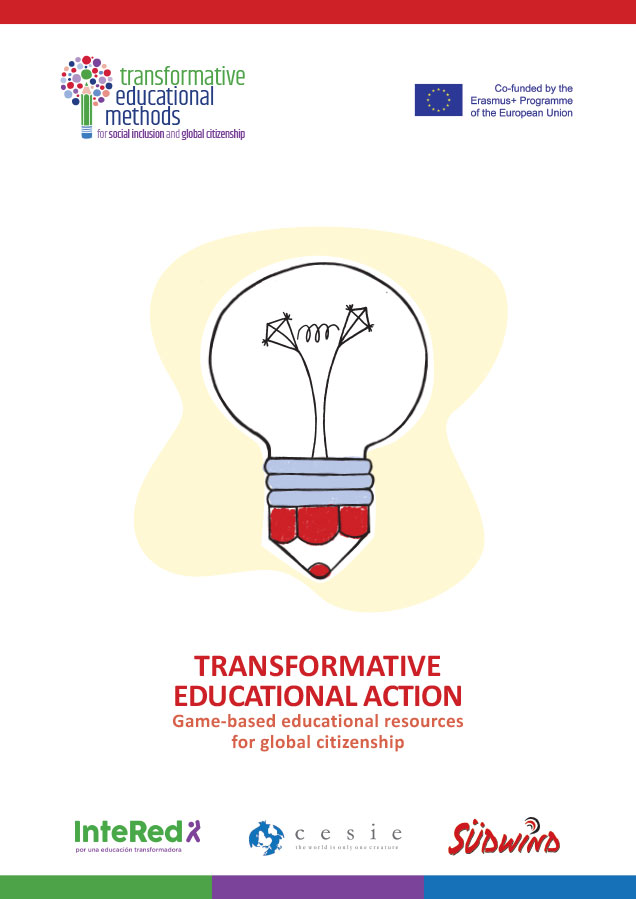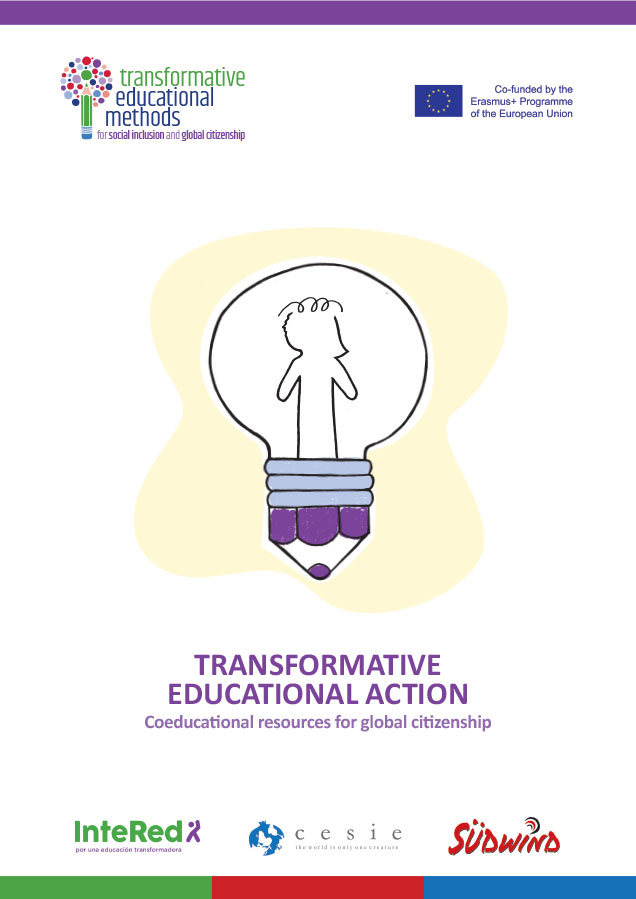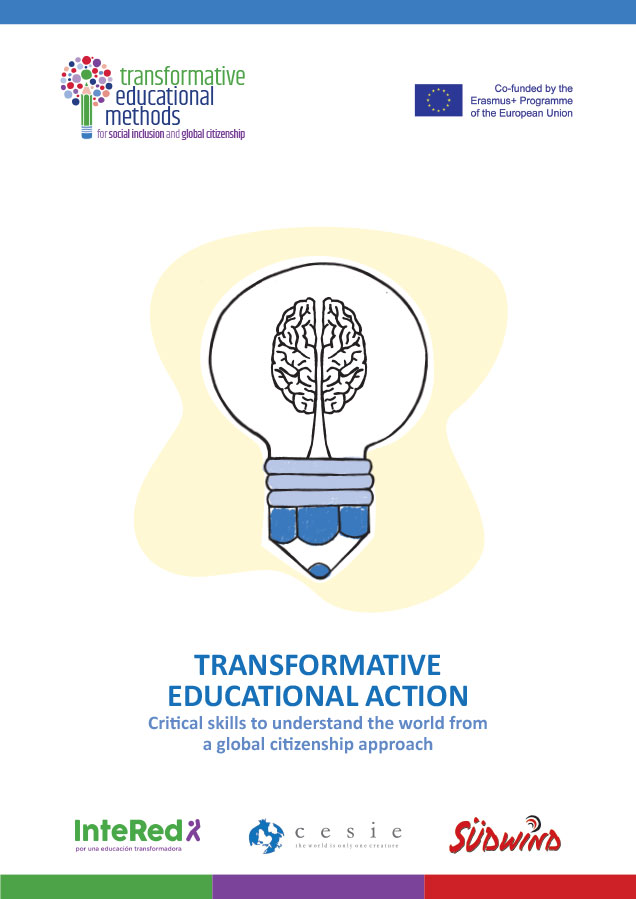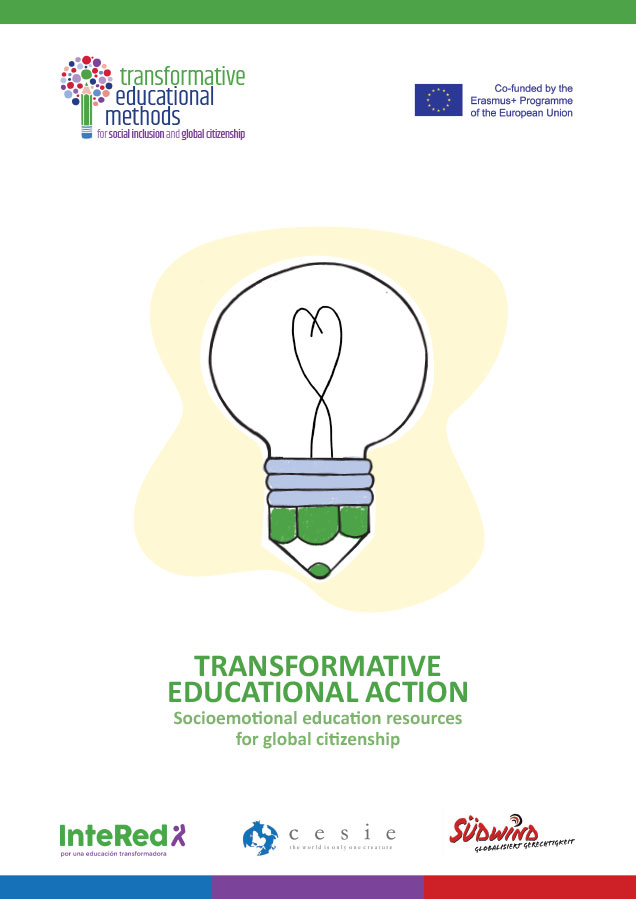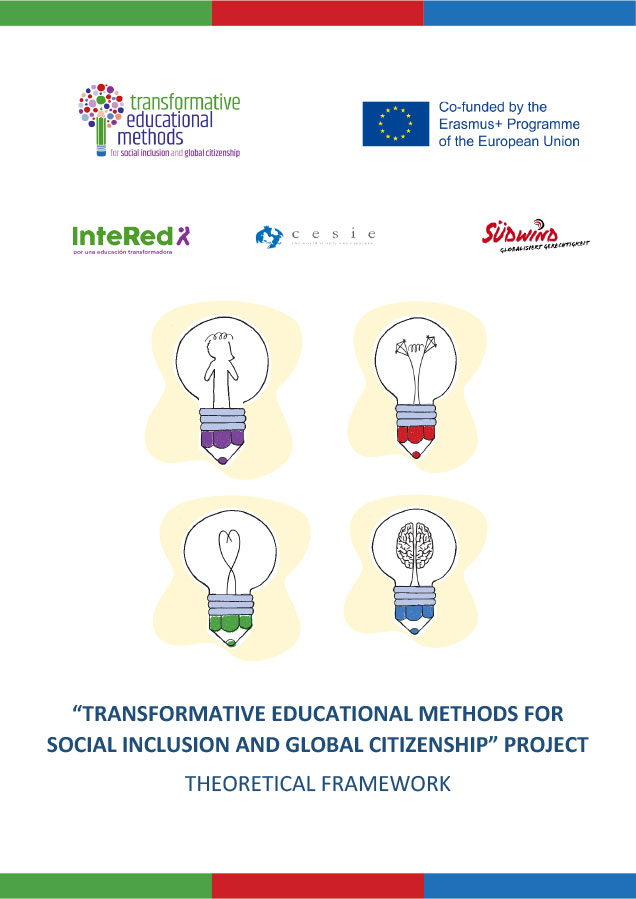The project “Transformative Educational Methods for Social Inclusion and Global Citizenship” (TEMSIC) aims to develop transformative educational materials to promote the educational inclusion of students in situations of greater vulnerability and at risk of early school leaving.
A key element to achieve this objective is the role of teachers, as a key agent for the educational continuity of students, as well as to ensure equal opportunities among all students, attending to the existing diversities in the classroom. Therefore, the TEMSIC Project has developed a series composed of 4 methodological guides and a theoretical framework document which aim to function as support resources for the strengthening of teaching capacities in 4 key areas and from an Global Citizenship Education approach.
These 4 key areas were defined through a consultation process aimed at teachers in Austria, Spain and Italy. As a result of this work focused on the needs of teachers, the following methodological guides of support for the teaching staff emerge as a result of the TEMSIC Project:
- Transformative Educational Action: Game-based educational resources for Global Citizenship. This guide is a reference resource for teachers who wish to delve into educational strategies to incorporate Game-Based Learning into teaching-learning processes from a Global Citizenship Education approach, aimed at promoting inclusion and equal opportunities among students. Download it for free in English here or here
- Transformative Educational Action: Coeducational resources for Global Citizenship. This guide presents a theoretical framework that supports the concept of co-education and its link with the construction of a global citizenship, its role in promoting gender equality and, in addition, presents curricular orientations for each educational level to focus their teaching practice from a co-educational perspective that allows analyzing and guiding the educational curriculum and didactic materials towards gender equality. Download it for free in English here or here
- Transformative Educational Action: Critical skills to understand the world from a Global Citizenship approach. This guide is a resource for teachers who wish to delve into educational strategies to incorporate the critical dimension in teaching-learning processes from a Global Citizenship Education approach aimed at social transformation. Download it for free in English here or here
- Transformative Educational Action: Socioemotional Education resources for Global Citizenship. This guide is a resource for teachers who wish to delve into educational strategies to incorporate the socio-emotional dimension in teaching-learning processes from a Global Citizenship Education approach oriented to social transformation, prioritizing global justice and present and future happiness, over the demonstration of the acquisition of knowledge and skills. Download it for free in English here or here
- Theoretical Framework of the TEMSIC Project. This additional document compiles the common concepts and parameters that have guided the development of the 4 guides and that are the foundation of the entire Project: Global Citizenship Education and Social Inclusion in schools. These concepts have been built and debated in a consensual way among the 3 European organizations that coordinate the TEMSIC Project. Download it for free in English here or here
In each country (Austria, Italy and Spain) the partner organizations of the TEMSIC Project will disseminate the methodological guides developed to the educational centers and teachers with whom they work, through digital media and also in physical meetings. Due to their adaptability, the guides can be used by teachers at any educational stage, and as they are available in 4 languages, including English, they are expected to have a regional scope throughout the European educational community.
The elaboration and dissemination of these methodological guides to support teachers is possible thanks to the funding of the Erasmus + Programme of the European Union and the support of the Spanish Service for the Internationalization of Education (SEPIE).
